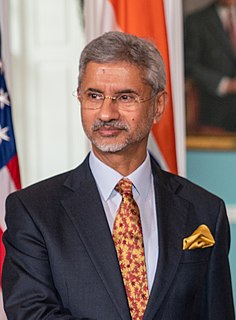A Quote by N. R. Narayana Murthy
Every company has to identify what I call its strategic resources, and make sure that it grabs as much of its strategic resources as possible.
Related Quotes
The entrepreneurial struggle is the same at basically every stage in the sense that there's maybe slightly less risk but strategic issues are generally always the same. Now there's so much existential risk from another company either being able to compete or to disrupt you in the same way you're disrupting somebody else, an entrepreneur needs a real steady partner who has the ability to start working with them in the Seed or the A and be credible and value-add with strategic advice, and just be backstopped by so much capital that you can do any growth round or even a public round.
Ideally, you will develop strategic response to your place in the corporate lifecycle to identify new paths of strategic renewal. You will look for new growth curves that can be started early enough to replace declining products and you will try to identify whole new curves that will take the organisation to new levels of growth as a whole.


































